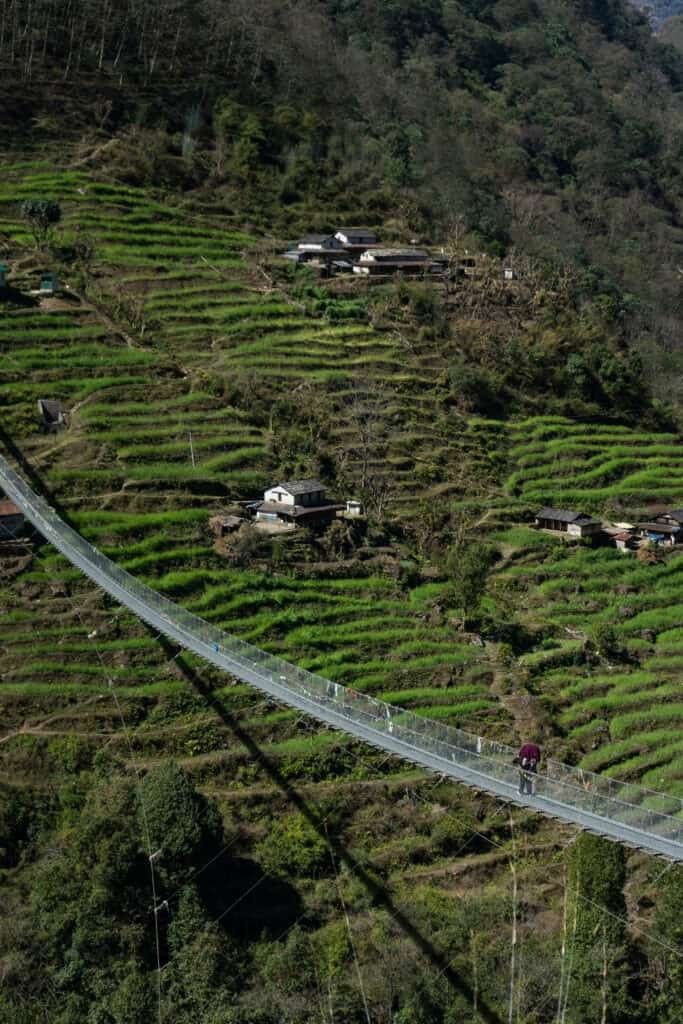Sustainable tourism is critical for preserving Vietnam’s natural beauty and cultural heritage, ensuring that future generations can enjoy its wonders while boosting local economies. SIXT.VN offers sustainable travel options that minimize environmental impact and maximize benefits for local communities, ensuring a responsible and enriching travel experience. Choose eco-friendly accommodations, support local businesses, and explore Vietnam responsibly for a sustainable adventure.
1. Understanding the Impact of Tourism
Tourism is a powerful economic force, with hundreds of millions of tourists traveling the globe annually. However, it’s crucial to recognize both the positive and negative impacts tourism can have on our planet and its people.
1.1. The Positive Impacts of Tourism
Tourism brings numerous benefits to communities worldwide. These include:
- Economic Growth: Tourism boosts local economies by generating income, creating jobs, and supporting infrastructure development.
- Cultural Preservation: It can help preserve local cultures and languages, encouraging the maintenance of traditions and heritage.
- Cultural Understanding: Tourism fosters cultural exchange, promoting understanding and appreciation between different cultures.
1.2. The Negative Impacts of Tourism
Despite its advantages, tourism also presents several challenges:
- Overtourism: Excessive tourism can strain local resources, degrade the environment, and diminish the quality of life for residents.
- Environmental Degradation: Increased waste, pollution, and habitat destruction can result from unsustainable tourism practices.
- Cultural Commodification: The “disneyfication” of cultural experiences can lead to a loss of authenticity and commodification of traditions.
 A woman enjoying the view of a lush forest, highlighting the importance of sustainable tourism in preserving natural landscapes
A woman enjoying the view of a lush forest, highlighting the importance of sustainable tourism in preserving natural landscapes
2. What Exactly is Sustainable Tourism?
Sustainable tourism, as defined by the World Tourism Organization, is tourism that takes full account of its current and future economic, social, and environmental impacts. It addresses the needs of visitors, the industry, the environment, and host communities, ensuring long-term benefits for all.
2.1. The Essence of Sustainable Tourism
At its core, sustainable tourism is about minimizing harm and maximizing benefits. It’s a solution designed to address the negative impacts of traditional tourism models, protecting both people and the planet. By adopting sustainable practices, we can ensure that tourism becomes a positive force for change.
2.2. How Sustainable Tourism Can Help
Sustainable travel is a commitment to minimizing the negative impacts of travel. This approach can reduce overtourism, support Indigenous communities, protect natural resources and wildlife, and encourage responsible travel practices. It empowers tourists to contribute positively to the destinations they visit.
3. Why Is Sustainable Tourism Important?
Sustainable tourism is vital because it ensures the benefits of tourism outweigh the negatives, making tourism a positive force for communities, cultures, and the environment. Sustainable models protect what makes our planet special, from its people to its natural resources.
3.1. Types of Sustainable Tourism
Sustainable tourism encompasses environmental and socio-cultural aspects, each addressing different challenges and goals. Understanding these categories helps tailor tourism practices to specific needs and contexts.
3.1.1. Environmental Sustainability
Environmental sustainability focuses on protecting wildlife, conserving habitats, and managing natural resources responsibly. Tourism accounts for a significant portion of global greenhouse gas emissions, making environmental sustainability crucial for mitigating climate change and preserving biodiversity.
3.1.2. Socio-Cultural Sustainability
Socio-cultural sustainability aims to improve the quality of life for people in tourist destinations, protect cultural heritage, and ensure that local communities benefit economically and socially from tourism. It focuses on respecting local traditions and promoting inclusive development.
 A woman enjoying the view of a lush forest, highlighting the importance of sustainable tourism in preserving natural landscapes
A woman enjoying the view of a lush forest, highlighting the importance of sustainable tourism in preserving natural landscapes
4. Key Reasons Why Sustainable Tourism Matters
4.1. Enhanced Experiences for Everyone
Sustainable tourism creates better experiences for travelers and local communities by focusing on positive and regenerative impacts. Locals benefit tangibly from tourism, while visitors enjoy more authentic and meaningful experiences.
4.2. Reduction of Overtourism
Overtourism can degrade destinations and diminish the quality of life for residents and tourists. Sustainable tourism reduces overtourism through policies and marketing, encouraging exploration of lesser-known areas and promoting balanced tourism.
4.3. Protection of Natural Environments and Support for Conservation
Tourism can incentivize the protection of natural areas and support conservation efforts. Revenue from tourism can fund conservation projects, create protected areas, and promote responsible treatment of wildlife.
4.4. Support for Local Communities
Economic benefits from tourism can support infrastructure, resources, and the overall quality of life in local communities. Tourism revenue can improve living standards and foster sustainable development.
4.5. Promotion of Learning and Cultural Understanding
Sustainable tourism fosters positive relationships between communities and visitors, leading to cultural exchange and mutual understanding. It helps eradicate cultural biases and promotes respect for diverse traditions and practices.
5. How to Develop Sustainable Tourism
Developing sustainable tourism is a collective responsibility involving governments, tourism boards, operators, marketers, and airlines. Informed decisions and strategic actions are essential for creating sustainable tourism models.
5.1. Strategies for Sustainable Tourism
- Incentives: Tax incentives for carbon-neutral solutions and policies promoting eco-conscious practices.
- Volume Control: Managing the number of visitors to popular sites to prevent overcrowding and environmental degradation.
- Marketing: Promoting lesser-known destinations to distribute tourism’s benefits more evenly.
5.2. The Role of Tourists
Tourists can drive sustainable tourism by choosing eco-conscious hotels, tours, and transportation options. Their preferences signal the importance of sustainability to the tourism industry, incentivizing more businesses to adopt eco-friendly practices.
Achieving sustainable tourism is an ongoing process requiring participation from everyone involved in the tourism industry and beyond. By working together, we can ensure that tourism benefits both people and the planet.
 Picturesque terraces of farmland, showcasing sustainable agricultural practices in tourism destinations
Picturesque terraces of farmland, showcasing sustainable agricultural practices in tourism destinations
 Scenic valley surrounded by mountains, highlighting the natural beauty that sustainable tourism helps preserve
Scenic valley surrounded by mountains, highlighting the natural beauty that sustainable tourism helps preserve
6. Being a Sustainable Tourist: Practical Steps
Individual tourists play a vital role in promoting sustainable tourism. By making conscious choices and adopting responsible practices, travelers can minimize their impact and contribute to the well-being of destinations.
6.1. Voting with Your Dollars
Support hotels, tours, experiences, and transportation options committed to sustainability. Research accommodations and tour operators to identify those with sustainable practices and positive reviews from other travelers. Consider renting electric vehicles to reduce your carbon footprint.
6.2. Advocating for Sustainable Travel
Amplify sustainable travel issues and advocate for solutions by talking about sustainable tourism and raising awareness. This encourages more travelers to make sustainable choices and emphasizes the importance of sustainability to tourism companies.
6.3. Practicing Sustainability on Your Travels
- Choose Sustainable Options: Book flights, hotels, and tour operators with strong sustainability commitments.
- Minimize Flights: Reduce short-haul flights and opt for alternative transportation when possible.
- Pack Light: Travel with less luggage to reduce fuel consumption.
- Use Reusables: Pack zero-waste toiletries and a water filtration system to avoid single-use plastics.
7. Sustainable Tourism in Vietnam with SIXT.VN
SIXT.VN is committed to promoting sustainable tourism in Vietnam, offering a range of services that support responsible travel practices. By choosing SIXT.VN, travelers can enjoy convenient, reliable, and eco-friendly options for exploring Vietnam’s natural and cultural treasures.
7.1. Services Offered by SIXT.VN
- Airport Transfers: Safe and convenient airport transfer services ensuring a smooth start to your trip.
- Hotel Bookings: A wide selection of hotels that suit your budget and location preferences.
- Sightseeing Tours: Expertly designed tours to explore famous attractions in Hanoi and surrounding areas.
- Flight Bookings: Helping you book flights with flexible schedules and prices.
- Tour Packages: Professionally designed Hanoi tour packages to experience the best of the city.
7.2. How SIXT.VN Promotes Sustainability
- Eco-Friendly Transportation: Options for electric or hybrid vehicles to minimize carbon emissions.
- Partnerships with Sustainable Hotels: Collaborating with hotels that have eco-friendly practices.
- Support for Local Communities: Promoting tours and activities that benefit local communities.
- Responsible Tour Operations: Ensuring tours respect the environment and local culture.
By choosing SIXT.VN, you are supporting sustainable tourism in Vietnam and contributing to the preservation of its natural beauty and cultural heritage. Enjoy a memorable and responsible travel experience with SIXT.VN.
8. Why Choose SIXT.VN for Your Sustainable Travel in Vietnam?
SIXT.VN offers numerous advantages for travelers seeking a sustainable and enriching experience in Vietnam:
- Convenience: Easy-to-use booking platform and efficient services save you time and effort.
- Reliability: Trustworthy and dependable services ensure a smooth and hassle-free trip.
- Support: Dedicated customer support to assist you with any inquiries or needs.
8.1. Address
260 Cau Giay, Hanoi, Vietnam.
8.2. Hotline/WhatsApp
+84 986 244 358.
8.3. Website
SIXT.VN
By choosing SIXT.VN, you can explore Vietnam with peace of mind, knowing that you are supporting responsible and sustainable tourism practices. Make your trip meaningful and memorable by choosing SIXT.VN.
9. Sustainable Travel Tips for Exploring Hanoi
When exploring Hanoi, consider these tips to minimize your impact and maximize your positive contributions:
- Use Public Transportation: Opt for buses, trains, or cyclo rides to reduce your carbon footprint.
- Support Local Businesses: Shop at local markets and dine at family-owned restaurants to support the local economy.
- Respect Local Customs: Dress modestly when visiting temples and pagodas, and be mindful of local traditions.
- Reduce Waste: Bring your own reusable water bottle and shopping bags to minimize plastic waste.
- Stay in Eco-Friendly Accommodations: Choose hotels and guesthouses that have sustainable practices.
10. Frequently Asked Questions (FAQs) About Sustainable Tourism
10.1. What is sustainable tourism?
Sustainable tourism is tourism that minimizes negative impacts and maximizes positive contributions to the environment, local communities, and the economy. It aims to meet the needs of visitors, the industry, and host communities while preserving resources for future generations.
10.2. Why is sustainable tourism important?
It helps preserve natural and cultural resources, supports local economies, and enhances the quality of life for residents and tourists.
10.3. How can I be a sustainable tourist?
Choose eco-friendly accommodations, support local businesses, reduce waste, respect local customs, and advocate for sustainable practices.
10.4. What are the benefits of sustainable tourism for local communities?
It boosts local economies, creates jobs, supports infrastructure development, and preserves cultural heritage.
10.5. How does sustainable tourism protect the environment?
It reduces pollution, conserves natural resources, protects wildlife habitats, and promotes responsible waste management.
10.6. What role does technology play in sustainable tourism?
Technology can help reduce carbon emissions, manage resources more efficiently, and provide travelers with information on sustainable options.
10.7. How can tourism businesses become more sustainable?
Implement eco-friendly practices, support local communities, reduce waste, conserve energy and water, and promote responsible tourism.
10.8. What is the difference between ecotourism and sustainable tourism?
Ecotourism focuses specifically on nature-based tourism, while sustainable tourism encompasses a broader range of environmental, social, and economic considerations.
10.9. How can I measure the sustainability of a tour operator or hotel?
Look for certifications, read reviews, and inquire about their environmental and social practices.
10.10. What are the challenges of implementing sustainable tourism?
Challenges include lack of awareness, limited resources, conflicting interests, and difficulty in measuring and monitoring sustainability.
By understanding and addressing these questions, we can all contribute to a more sustainable and responsible tourism industry in Vietnam and beyond.



